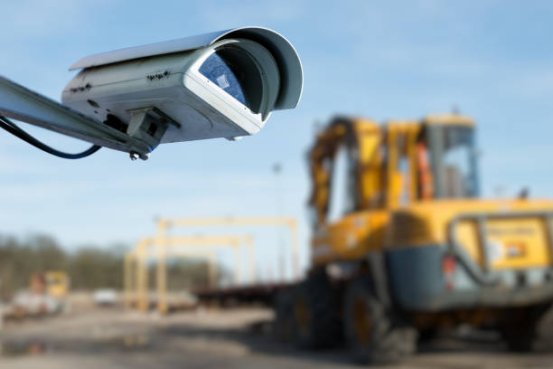Ensuring Safety on Construction Sites: What You Need to Know
Securing a construction site is essential to prevent theft, vandalism, and accidents. This guide explores the critical elements of site protection—from key personnel and technology to fully integrated services—offering practical advice to keep your project safe and on track.
Securing a construction site is essential to prevent theft, vandalism, and accidents. This guide explores the critical elements of site protection—from key personnel and technology to fully integrated services—offering practical advice to keep your project safe and on track.

The Role of Security Personnel on Construction Sites
Security staff play a central role in ensuring safety and order on-site. Their presence helps to deter crime, manage access, and respond quickly to potential threats.
Core Responsibilities:
-
Patrolling and Monitoring: Routine inspections and active CCTV monitoring help detect unusual behaviour early.
-
Controlling Access: Guards check IDs and restrict entry to authorised personnel only.
-
Responding to Emergencies: During incidents, they coordinate evacuations, alert emergency services, and stabilise the area.
-
Reporting Incidents: Keeping daily logs and detailed records supports accountability and improvement.
Key Skills:
Effective security personnel are observant, calm under pressure, communicate clearly, and are comfortable using surveillance and control equipment.
Understanding the Role of On-Site Security Guards
Security guards serve as the first visible line of defence, helping to deter unauthorised activity simply through their presence.
Daily Duties Include:
-
Perimeter Inspections: Verifying that fencing and barriers remain secure and functional.
-
Entry and Exit Logging: Monitoring movement in and out of the site to prevent breaches.
-
Liaising with Authorities: Cooperating with police and emergency teams when needed.
-
upporting Emergency Plans: Helping guide staff during fire drills or real incidents.
Training and Qualifications:
Guards are usually trained in conflict management, emergency response, and equipment operation. Certifications ensure they meet industry standards for health and safety.
Importance of Construction Site Cameras
Video surveillance is a critical component of any security setup. Cameras provide continuous visibility and help resolve incidents after they occur.
Types of Security Cameras:
| Type | Coverage | Night Vision | Cost |
| Fixed Cameras | Limited area | Optional | Low |
| PTZ Cameras | Wide, movable view | Yes | Medium |
| Thermal Cameras | Broad area | Excellent | High |
Fixed cameras monitor key locations, PTZ cameras provide flexible coverage, and thermal cameras excel in low-light conditions.
Security Services Tailored for Construction
Security services can be scaled and customised based on the size and complexity of the site.
-
Manned Guarding: Trained professionals provide on-site monitoring and rapid response.
-
Mobile Patrols: Ideal for large or multi-zone sites, patrols extend coverage through scheduled rounds.
-
Alarm Response Teams: Ready to act when motion detectors or alarm systems are triggered.
Selecting the Right Security Provider
Choosing a reliable security company is vital for site safety. Look for:
-
Proven Experience: Firms with a history in construction security understand industry-specific risks.
-
Wide Service Offering: Providers who offer a combination of personnel, technology, and response services are more adaptable.
-
Client Reputation: Online reviews and client testimonials can reveal responsiveness and reliability.
Benefits of Integrated Security Systems
Combining various technologies into one unified system enhances both monitoring and incident response capabilities.
Key Components:
-
CCTV Systems: Deliver 24/7 visual oversight across the site.
-
Intruder Alarms: Detect break-ins or unexpected movements.
-
Access Control Systems: Restrict and track personnel with ID badges or biometrics.
-
Motion Detectors: Alert managers to suspicious activity even in blind spots.
Advantages:
-
Central Management: A single dashboard for all systems improves oversight.
-
Faster Response: Unified data enables quicker decision-making during incidents.
-
Performance Tracking: System logs help identify weak spots and optimise future security measures.
Frequently Asked Questions
Q1: What qualifications are required for construction security staff?
A1: Most guards need at least secondary education, physical capability, and training in surveillance and emergency procedures.
Q2: How do guards deter criminal behaviour?
A2: Their visibility, constant vigilance, and prompt intervention help prevent theft and intrusion.
Q3: Are surveillance cameras effective at night?
A3: Yes. Thermal and night-vision cameras are specifically designed to maintain coverage in darkness.
Q4: What should I look for in a security company?
A4: Focus on firms with construction site experience, comprehensive services, and strong client feedback.
Q5: How do integrated systems improve site security?
A5: They enable real-time monitoring and coordination between devices, improving speed and accuracy in threat response.
Final Thoughts
A strong security strategy—combining expert personnel, effective surveillance, and integrated systems—minimises risk and supports a safe, uninterrupted construction process. By choosing reliable services tailored to your site’s needs, you not only protect assets but also foster a safer work environment for all.
Sources:
- https://jobs.aus.com/job/riverton/security-officer-construction-site/22950/82194529184
- https://www.belfrysoftware.com/blog/security-guards